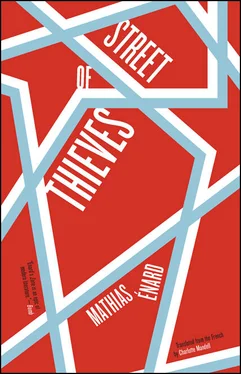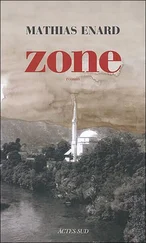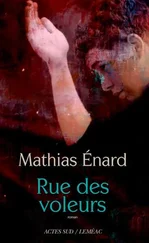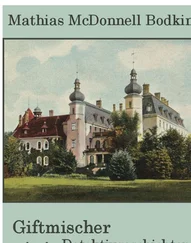I watched her, I wanted to take her hand, not talk about the crisis. At times, Cruz’s face came back to me, appearing between Judit and me; I had to shake my head to make it disappear.
She was fed up with school. She was in her last year, wasn’t taking many courses, didn’t have many class hours, and she felt her Arabic was still just as bad. She didn’t really know what to do, she wanted to spend some time abroad, maybe in Egypt or Lebanon, since Syria was in flames — I was hurt that she didn’t mention Morocco, I must’ve made a funny face; she immediately changed the subject.
“And you, what’re your plans? What are you going to do, are you going to try to stay here?”
“I don’t know, it depends a little on you.”
She lowered her eyes, and I knew then that everything I had imagined was true — she was with someone else.
She was suddenly shifting about nervously.
She didn’t say anything.
I was so tired, worried, broken by my stay with Cruz, the long hours awake in the bus, and the emotion of seeing Judit again that I got annoyed, it was the first time I raised my voice with her, I shouted something like you could tell me that you don’t want to see me anymore, shit, and I half-rose from my chair — the people at the table next to ours (bourgeois couple, sunglasses perched atop their heads, checked shirt, V-neck over shoulders) turned to us, I screamed at them to mind their own business, they looked offended.
Judit looked me in the eyes as if to say sit down, stop your histrionics. I became aware of my ridiculousness and sat back down.
“Listen, there’s no point getting worked up like that.”
She was whispering. She was ashamed. I took my courage in my hands, the courage that she didn’t have.
“You have someone else, don’t you?”
She denied it. She shook her head, repeating no, no.
“You’re a fucking slut.”
I had made use of my lowbrow detective-novel vocabulary, to make her react. She must not have understood what I said, since she didn’t get angry. She just added I don’t want to be with anyone at the moment, that’s all, which seemed to me an incredible piece of crap, a lie, a stupid remark.
I looked at the small oval plaza. Opposite, under the trees, there was a beautiful wooden porte cochere from another era, a chic restaurant; in front of me a pretty fountain shaped like a vase, with gold spigots; an old lady went by pulling a wheeled shopping bag.
We stayed for a while in silence, I didn’t know what to do or say.
She felt bad about leaving me like that, I could sense it.
“Where are you sleeping?”
“What the fuck do you care.”
No need even to add “bitch” or “cow,” since the phrase sounded so much like a bruise.
“Don’t get mad, it’s stupid. I’m just trying to help you.”
I didn’t know what I wanted anymore, I felt sorry for provoking her anger. The lady with the cart had crossed the entire square; a baguette stuck out of her cart; the couple next to us with the sunglasses asked for the bill.
She had only one desire, to leave, I knew that; she must have been tortured by guilt; I saw myself, with my poorly-shaved African mug, in my shitty khaki parka, without a goal, without anything, the world wasn’t even the world, it was a television set, a fake. I had a sudden burst of memories, Tangier, our neighborhood, Meryem and Bassam, I wondered what the hell I was doing there, on this square that was so pretty, so cute, facing Judit who didn’t want me anymore, God alone knows why.
I began talking in Moroccan.
I begged her, without articulating, very fast; I spoke to her of love, of my fatigue, of the Ibn Battuta, of Cruz, of the darkness of Algeciras, of our week in Tunis, of the memories on our balcony in Tangier, I told her she couldn’t throw all that away in one fell swoop, she’d kill me.
She looked at me with a pained air. I wasn’t at all sure she had understood what I had just said.
She took my hand; she said something sort of definitive, like “I don’t have the strength,” which sounded dramatic and theatrical in Arabic; I felt as if we were acting in an Egyptian soap opera.
I was too exhausted, I muttered, whatever you want, I won’t bother you anymore; just point the way to a mosque, that’s all.
Judit looked at me with big eyes: a mosque?
A mosque, a bookseller, and a hotel that’s not too expensive, I added.
A supermarket, I’ll find that on my own.
I called the waiter, got out a nice, brand-new fifty-euro note, and didn’t let Judit pay, even though she wanted to.
CITIEScan be tamed, or rather they tame us; they teach us how to behave, they make us lose, little by little, our foreign surface; they tear our outer yokel shell away from us, melt us into themselves, shape us in their image — very quickly, we abandon our way of walking, we stop looking in the air, we no longer hesitate when we enter a subway station, we have the right rhythm, we advance at the right pace, and whether you’re Moroccan, Pakistani, English, German, French, Andalusian, Catalan, or Philippine, in the end Barcelona, London, or Paris train us like dogs. We surprise ourselves one day, waiting at the pedestrian crossing for the signal to walk; we learn the language, the words of the city, its smells, its clamor — Barcelona woke up to the racket of the gas canisters being changed, to the Pakistani handling the propane gas and shouting Butaaanooooooooo in his orange uniform, accursed color, color of the worst profession in the world, since you had to cart 30-kilo canisters up the narrow staircases of apartment buildings, with no elevator, to the fifth or sixth floor for a tiny commission per bottle sold: in my neighborhood, the “Pakis,” whether they were actually Pakistani or Bengali, Indian or even Sri Lankan, were bottled gas peddlers, rose sellers, beer sellers late at night, grocers or telephone operators in the locutorios, the talking-places, that mix of phone-booth-equipped telecommunications office and internet café. In the beginning I went often, on the Rambla del Raval, right near my place, to that sort of establishment to consult the Internet — the rates were ludicrously low, and all countries and nationalities could be found there: Moroccans, Algerians, Western Saharans, Ecuadorans, Peruvians, Gambians, Senegalese, Guineans, and Chinese who called their families or sent money to their country by an international transfer system of liquid cash, from hand to hand, a system that came close to a racket since the commissions were so high, but which had the poetry of the modern world: you gave a hundred, two hundred or a thousand euros to a ticket office in Barcelona with the identity of the recipient, and the sum was immediately available in Quito or Lahore; dough doesn’t recognize the same boundaries as its owners, money that the migrants weren’t yet able to borrow by themselves in Spain could dematerialize in the innards of the Internet to transform into electrons, pulses, electronic mail, leave Dhaka and appear, instantaneously, in a computer in Barcelona.
My street was one of the worst in the neighborhood, or one of the most picturesque if you like, it answered to the flowery name of Carrer Robadors, Street of Thieves, a headache for the district’s town hall — street of whores, of drug addicts, drunkards, of dropouts of all kinds who spent their days in this narrow citadel that smelled of urine, stale beer, tagine, and samosas. It was our palace, our fortress; you entered through the little bottleneck on Carrer de Hospital, and you emerged on the esplanade of modern buildings at the corner of Carrer de Sant Rafael, which opened onto the Rambla del Raval; opposite, on the other side of Carrer Sant Pau, began Carrer de Sant Ramon, another fortress — between the two, the new movie theater, supposed to transform the neighborhood by the lights of culture and draw the bourgeois from the North, the well-to-do from Eixample who, without the geographical-cultural initiatives of the City, would never come down here. Of course the lovers of auteur films and the clients of the four-star hotel on the Rambla del Raval had to be protected not only from the excesses of the rabble, but also from the temptation of going to the whores or buying drugs, and so the zone was patrolled 24/7 by the cops, who often parked their van at the end of our Palace of Thieves: their presence, far from being reassuring, on the contrary gave the impression that this region was under surveillance, that there was real danger, especially when the patrol was large, armed to the teeth, and in bulletproof vests.
Читать дальше












